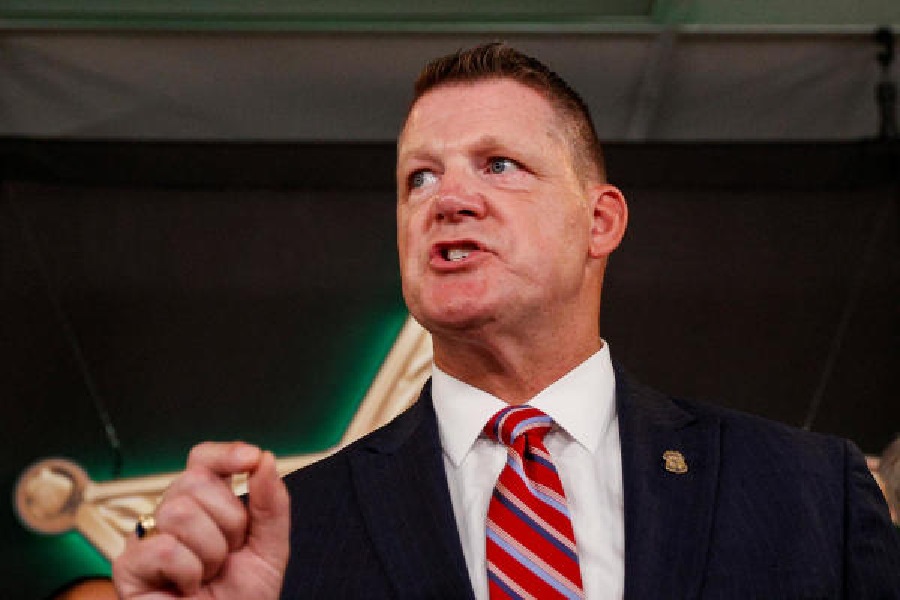The Secret Service did not search the perimeter of the Trump International Golf Club in West Palm Beach, Florida, on Sunday before former President Donald J. Trump began his round, an acknowledgment that has put the besieged agency under renewed scrutiny two months after a similar episode in Pennsylvania.
The decision raises further questions about whether the Secret Service has the resources and ability to adequately perform its duties during a time of increasing violence and a unique campaign between a sitting vice-President and a former President.
While the agency’s acting director hailed a Secret Service agent for acting swiftly and preventing any harm to Trump on Sunday, the FBI said that data from a gunman’s cellphone indicated he spent almost 12 hours near the course before he aimed a rifle in the direction of Trump while he was golfing.
In remarks to reporters at the Palm Beach County Sheriff’s Office on Monday afternoon, Ronald L. Rowe Jr, the Secret Service’s acting director, said, “The President wasn’t even really supposed to go there.”
Rowe said Trump, the Republican presidential nominee, did not have an outing on the course on his official schedule. Rowe did not clarify in his statements whether this meant that agents did not have time to sweep the golf course. Yet it is public knowledge that Trump frequently plays golf at one of his Florida courses on Sundays, raising the risk level for the former President.
Rowe praised his agents for spotting the barrel of a gun poking through the bushes of the golf club and firing at the suspect, Ryan W. Routh, 58, before he could get off a shot. A manhunt commenced, leading to Routh being detained soon after. He was charged in federal court on Monday with possession of a firearm as a felon.
The Secret Service’s methods “were effective yesterday”, Rowe said. He pointed to “early” identification of the threat, an immediate evacuation of Trump and the help of increased protective measures — including the presence of counter-snipers.
But after Sunday’s episode, legislators, law enforcement officials and Secret Service alumni questioned whether the embattled agency was still up to its mission of protecting current and former Presidents and their families.
“I’m very concerned at reports that the suspect allegedly was in the bushes for 11 hours,” said Beth Celestini, a long-time Secret Service agent who protected President Barack Obama before retiring in 2021.
“The Secret Service has protocols where if enacted, this suspect should have been discovered before the incident.”
Ronald Layton, a 26-year veteran of the agency who led divisions with oversight of protection and event security, asked, “Was this just luck that you caught this guy, or did you have the appropriate mechanisms in place for these kinds of things on the threat spectrum?”
Rowe said that in order to handle an increasingly challenging threat environment, the Secret Service would need Congress to provide more funding for personnel, overtime and facilities.











